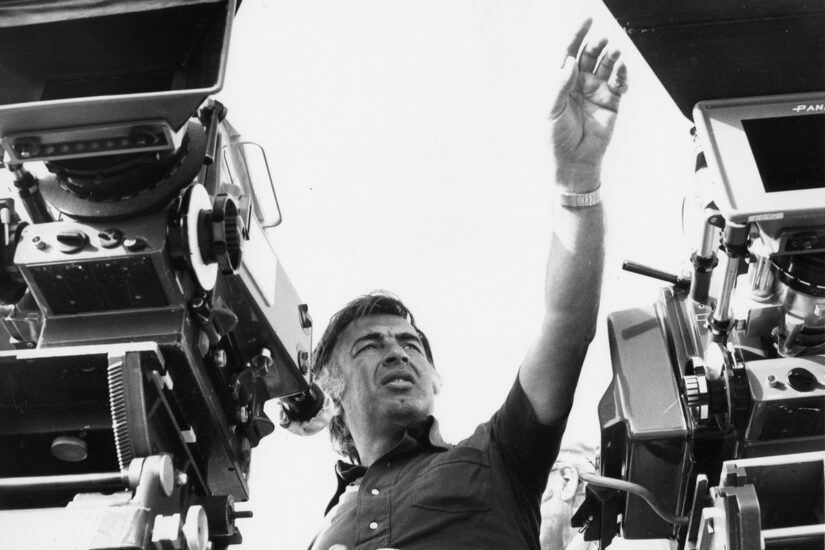
Moustapha Akkad on set.
Akkad Endowment launched at SCA for aspiring international student filmmakers
SCA announced its Malek Akkad endowment to USC to provide financial aid for international students aspiring to become filmmakers.
Two institutions have been a constant in Malek Akkad’s life: SCA and The Halloween franchise movies.Malek is the producer of the films that gave us Michael Myers, the horror genre’s most enduring “boogeyman.” The character has been terrifying audiences since Jamie Lee Curtis first took that fateful babysitting gig in 1978’s Halloween. The original films were produced by Moustapha Akkad, Malek’s father, who fueled his son’s early love of filmmaking by giving him odd jobs on his productions, including mopping up fake blood on the set of Halloween 4. Malek has produced the Halloween sequels for the last twenty years, including Halloween Kills which debuted atop the box office on October 17th.
Malek also followed Moustapha onto the USC campus. The elder Akkad came to USC as an international student from Aleppo, Syria, and earned a degree in Film & Television Production from the School of Cinematic Arts. Malek also graduated from Production in the ‘80s, and continues his father’s legacy as a consistent supporter of the School of Cinematic Arts. This month he joined SCA in announcing the Moustapha and Malek Akkad Student Support Fund, which will provide financial aid to international students studying at the School. The first recipient is Kay Zhang, an MFA student from China who is studying directing and producing. Zhang is currently working on her thesis film Mother in the Mist, about a young mother in Wuhan, China, who is locked out of the hospital that is treating her premature baby after the COVID pandemic hits.
Malek Akkad says the support fund both honors his father’s legacy and allows international students to find their own voices as cross-cultural creators. “USC gave my father access to the Hollywood style of filmmaking. We wanted the fund to offer that same opportunity to a new generation of global filmmakers.”
Moustapha Akkad’s vision was always to use cinema as a tool to bridge the cultures of the West and the Middle East. He wrote and directed The Message (1976), starring Anthony Quinn as Hamza, the Uncle of God’s prophet Muhammad, with the intent of showing Hollywood how Islam and Christianity shared a common backstory. He continued with the epic Lion of the Desert, starring Oliver Reed, Rod Steiger and Quinn as Omar Mukhtar, liberator of his people during the Italian occupation of Libya. Had it not been extremely successful, Halloween might have been seen as an outlier among his credits. But Moustapha realized there was a universal experience at the heart of the story. Even though he was not a horror fan, he invested in USC alum John Carpenter’s idea of a terrorized babysitter because he knew, that no matter one’s background, everyone has had a babysitter. He believed the concept could reach a global audience. Halloween remains one of the most successful independent films of all time, as well as earning inclusion in the Library Of Congress’ National Film Registry for being culturally, historically or aesthetically significant. Malek is proud that, “The film has introduced its namesake holiday to countries all over the world that had never celebrated it.”
For Malek Akkad, the fund honors his family’s legacy as filmmakers and as dedicated Trojans. Moustapha and his daughter Rima, who was also a USC grad, tragically passed in the 2005 Amman bombings while they were scouting locations for an epic on the Crusades starring Sean Connery. The family has also funded a sportsmanship award for USC Polo players in honor of Rima, who was on the team; her son Tarek is also a Trojan. Malek calls his time at USC “so instrumental in my life— the mindset and confidence it gave me on film sets. I can’t believe I have a degree in making movies!”
The Moustapha and Malek Akkad Student Support Fund will be awarded each year to a current international student who, like the Akkads, is interested in using their artistry to further stories that can travel the globe. Even the kind that might require cleanup of buckets-full of film blood at the end of each day’s shoot.



